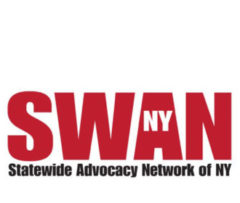- SUPPORT OPWDD SERVICES
The Office for People with Developmental Disabilities (OPWDD) is THE voice and advocate in state government for the very unique needs of individuals with intellectual and developmental disabilities (IDD). We seek additional funding, as well as administrative and legislative support to sustain critically needed supports and services, and to address unmet need. Following years of imposed budget neutrality even as need has grown; it has become imperative that OPWDD’s budget be increased. Only this can ensure that essential services for our most vulnerable citizens are safeguarded despite the self-imposed Medicaid budget cap.
- SUPPORT OUR WORKFORCE
Sadly, the workforce crisis continues, as a result of both chronic inadequate state funding of nonprofit services for individuals with IDD and the raise in the minimum wage. There are still alarmingly high vacancy rates, staff turnover and work force gaps creating instability for our loved ones. This shortage contributes to gaps in oversight, lack of care continuity and increased training needs, all of which create additional invisible costs, increased risk for individuals and potential liability for the state. Efforts to finance, build and retain a strong workforce in the nonprofit sector for individuals with IDD are essential in sustaining New York’s service delivery system for our most vulnerable citizens.
- SUPPORT THOSE WITH COMPLEX NEEDS
Individuals with complex physical and/or behavioral needs require a significantly higher level of supports and services. Current rate rationalization models have made it increasingly impossible for these individuals to access appropriate services due to the increased cost and specialty of care they require. We seek either additional/ongoing funding to ensure appropriate, sustainable service delivery for our most complex individuals or “needs based” funding mechanisms to provide incentive and ensure sustainability of service delivery for all levels of complexity.
- GET CARE MANAGEMENT RIGHT BEFORE CONSIDERING MANAGED CARE
A new system of Care Management was introduced on July 1, 2018. This shifted Medicaid Service Coordination to seven new Care Coordination Organizations (CCO) that oversee Care Managers. They are a critically important component of access to and delivery of services. Unfortunately, this well intended consolidation has fallen far short of expectations. For many, the enhanced care management promised has been little more than an endless process of questionable assessments while many families have seen a revolving door of care managers. Accurate evaluation and assessment of need, as well as meaningful quality measures must be fully and effectively operational; technology across all systems needs to be aligned and integrated so as to provide for consistent, data driven enabling and quality control. Without this resolution, moving on to Managed Care is not advisable.
SWAN-legislative-messaging-1-14-20-FINAL-VERSION-2